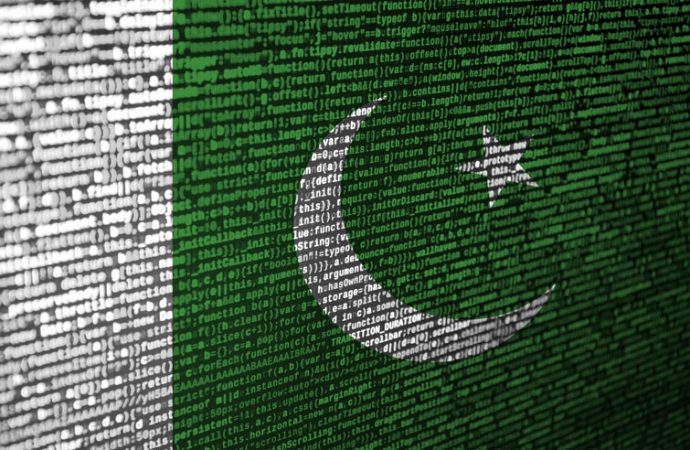Author Recent Posts Rameen Mufti Latest posts by Rameen Mufti (see all) Why Confidence-building Measures Between Pakistan and India Failed – February 7, 2023 TTP Resurgence in FATA – February 7, 2023 What to Improve in Pakistan’s National Security Policy – December 21, 2022
The two countries had a war of words at the UN in December. Indian Foreign Minister Subrahmanyam Jaishankar called Pakistan ‘the epicentre of terrorism’, and Foreign Minister of Pakistan Bilawal Bhutto clapped back, demanding India to stop the spread of Islamophobia. The contention on India’s treatment of Muslims and Pakistan’s alleged sponsorship of terrorism has existed since 2007. However, the countries have not come to a truce despite confidence-building attempts. Where did confidence building measures between Pakistan and India go wrong?
Despite puting numerous CBMs in place, trust deficit between Pakistan and India has long existed. In strained times, there has been rise in violations that cause more suspicion. The Mumbai attack in 2008 witnessed a stark increase in ceasefire violations (CFVs) at the line of control (LOC). The Pulwama attack brought the two countries at the brink of an escalation breaking the 1991 airspace non-intrusion CBM and Agreement for prior Notification of Military Exercises.
Pakistan and India are taking more confidence-avoiding rather than confidence-building measures. In 2008, attacks at the Indian embassy in Kabul and Taj Hotel Mumbai led to frequent CFVs at the LOC further straining ties between the two countries between 2009 and 2013. India has for long blamed Pakistan for harbouring militant organizations responsible for terrorist attacks in India. Pakistan, on the other hand, has denied the accusations. Most of the accusations levelled by India were to divert the attention of the international community from India’s human rights violations in IIOJ&K and its blatant sponsoring of terrorism in Baluchistan. In such an environment of mistrust and uncertainty, no CBMs would be able to mend ways between the neighbouring countries.
India, led by hardline BJP is using international laws and agreements to corner Pakistan at the international level. UN Resolutions 1368, 1373, and Article 51 of the UN Charter on the ‘right to self-defence against an armed attack by a non-state actor’ were propagated to conduct airstrikes in Pakistan. India’s misuse of international law is itself an attempt to dodge the international community from its own international law violations. Indian backed terror attack at Hafiz Saeed’s home in Lahore killed several people. India also revoked Article 370 and stripped Kashmir of its political autonomy. It is avoiding international intervention on the issue by citing the Simla Agreement with Pakistan- it rejected the UN’s decision to investigate human rights violations on both sides of Kashmir. India argues that Simla Agreement’s clause to resolve disputes bilaterally supersedes UN conventions. The International Court of Justice cannot intervene either since Article 2 prevents it from entertaining cases on members of the Commonwealth. This has created a trust deficit between the countries.
There is no point of convergence between India and Pakistan on the issue of Kashmir due to former’s utter disregard of UNSC Resolutions. Pakistan accepted the UN resolutions on Kashmiri people’s ‘right to self-determination’ after the 1948 Indo-Pak War. India, however, rejected the conventions and any future international interventions. It legitimised the accession of Maharaja Hari Singh and formed a constituent assembly in Kashmir as an alternative to a referendum. Fast forward to 2019, the Indian government revoked Article 370 and removed its autonomous status. Kashmir has become two provinces: one is Buddhist-dominated Ladakh, and the other is a merging of Hindu-dominated Jammu and Muslim-dominated Kashmir. Since then, restoration of ties between the two nations seem nearly impossible.
India is pushing for an anti-Pakistan and anti-Muslim agenda as part of its political Ideology. BJP, the ruling party, has reimagined India as a home for Hindus while restricting religious citizenship and identity for others- especially Muslims. Citizen Amendment Act 2019 grants fast-track citizenship to all other religious groups except Muslims. The Indian Supreme Court also ruled in favour of rioters who demolished Babri Masjid in Ayodhya. There has been a surge in violence against Muslims; the February 25 riot led to the killings of more than 40 Muslims. Following the spat between India and Pakistan, the BJP workers burned effigies of the Foreign Minister of Pakistan across the country. Narendra Modi has threatened war against Pakistan and flaunted India’s military capabilities. These events have led to a deadlock between Pakistan and India, followed by frequent breaches of confidence-building measures.
The rival neighbours, India and Pakistan, have struggled over the same accusations for over a decade. It is time that they come to a truce and work towards rebuilding peace and stability in the region. This will only be possible if the two countries take the right steps to build effective confidence-building measures that leave little room for compliance and implementation failure.
- Why Confidence-building Measures Between Pakistan and India Failed - February 7, 2023
- TTP Resurgence in FATA - February 7, 2023
- What to Improve in Pakistan’s National Security Policy - December 21, 2022





















Leave a Comment
Your email address will not be published. Required fields are marked with *